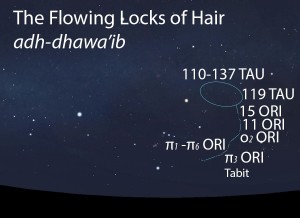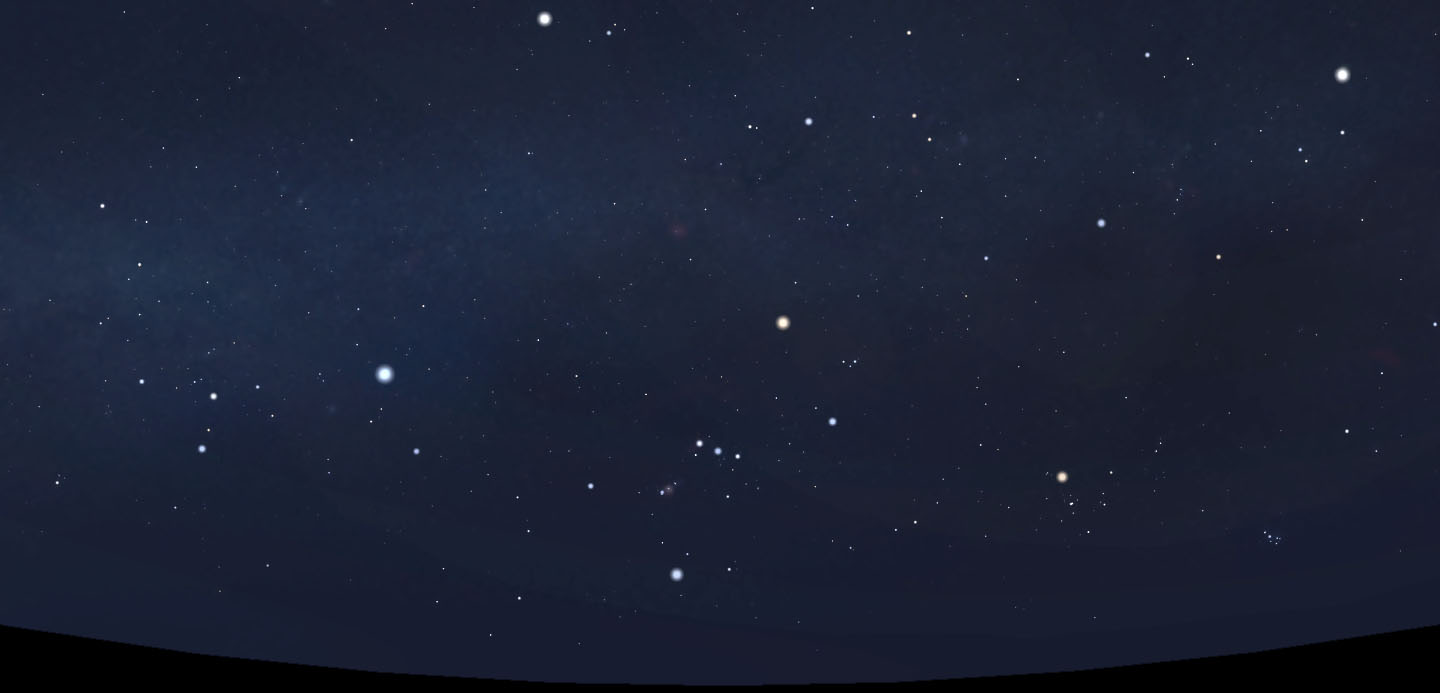Star Names
The Flowing Locks of Hair (adh-dhawa’ib)
A number of fainter stars represent the flowing locks of hair of the female figure of Jawza’. In the earliest times, the name “Jawza’ ” referred to only the three bright stars that are lined up in the middle of the figure.

The Flowing Locks of Hair of Jawza’ (adh-dhawa’ib) as it appears in the west about 45 minutes before sunrise in early December. Sky simulations made with Stellarium.
Appearance
A large number of unremarkable stars that start above the Head of Jawza’ and arc around to the right and down her right side. The brightest stars in the group lie in a single line at the ends of her long hair. Ibn Qutayba locates these stars above the head of Jawza’, and as-Sufi only includes the brighter stars along her right side.
Modern Identification
110-137 TAU, numerous white stars, magnitudes 4.9-6.2
119 TAU, orange pulsating variable star, magnitude 4.3
15 ORI, white star, magnitude 4.8
11 ORI, blue-white star, magnitude 4.7
ο2 ORI, yellow star, magnitude 4.1
π1 ORI, white star, magnitude 4.6
π2 ORI, white star, magnitude 4.4
π3 ORI (Tabit), white star, magnitude 3.2
π4 ORI, blue-white star, magnitude 3.7
π5 ORI, blue-white star, magnitude 3.7
π6 ORI, yellow star, magnitude 4.5
Timing
The Flowing Locks of Hair of Jawza’ consume a wide swath of sky, so they take about two weeks to rise and four weeks to set. On account of the precession of the equinoxes, today we can expect to observe the Flowing Locks of Hair setting throughout the month of December and rising in early to mid July, as seen from the latitude of Tucson. (See How to Observe on the About page for more on this topic.)
Rain Stars
The Flowing Locks of Hair do not figure in the calendar of the rains stars.
Lunar Stations
The Flowing Locks of Hair do not figure in the calendar of the lunar stations.
Related Stars and Celestial Complexes
The Flowing Locks of Hair is part of the Jawza’ (al-jawza’, الجوزاء) folkloric celestial complex, which developed over time from the central stars that mark her Belt of Pearls.
Related Blog Posts
Jawza’, Snow Queen of the Arabs

